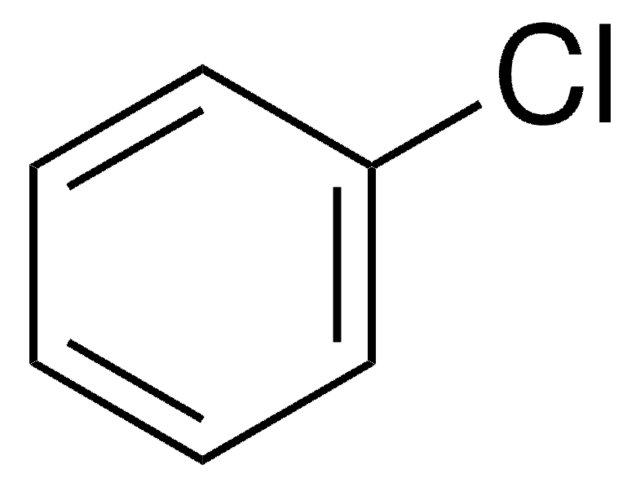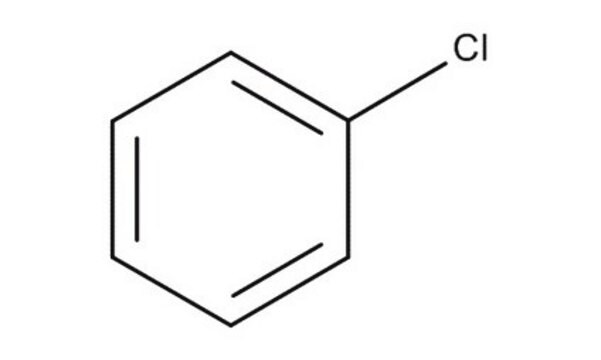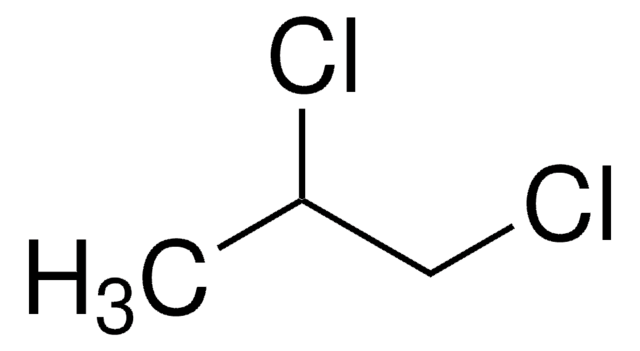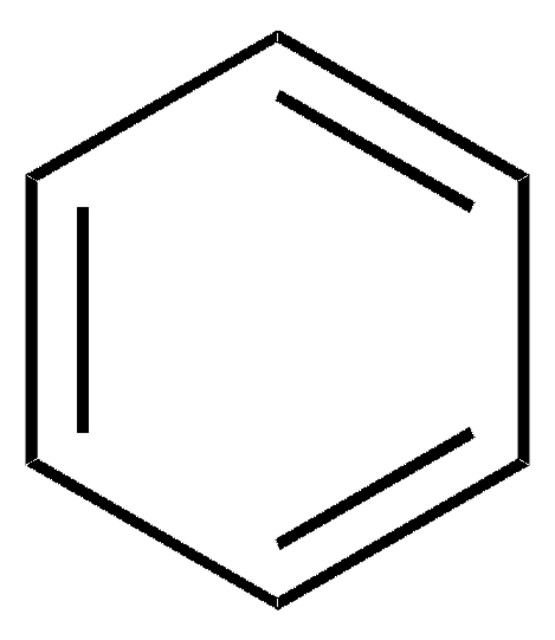About This Item
Recommended Products
grade
analytical standard
Quality Level
vapor density
3.86 (vs air)
vapor pressure
11.8 mmHg ( 25 °C)
assay
≥99.7% (GC)
autoignition temp.
1178 °F
shelf life
limited shelf life, expiry date on the label
expl. lim.
7.1 %
refractive index
n20/D 1.524 (lit.)
n20/D 1.525
bp
132 °C (lit.)
mp
−45 °C (lit.)
density
1.106 g/mL at 25 °C (lit.)
application(s)
cleaning products
cosmetics
environmental
food and beverages
personal care
format
neat
SMILES string
Clc1ccccc1
InChI
1S/C6H5Cl/c7-6-4-2-1-3-5-6/h1-5H
InChI key
MVPPADPHJFYWMZ-UHFFFAOYSA-N
Looking for similar products? Visit Product Comparison Guide
General description
Application
signalword
Warning
hcodes
Hazard Classifications
Acute Tox. 4 Inhalation - Aquatic Chronic 2 - Flam. Liq. 3 - Skin Irrit. 2
Storage Class
3 - Flammable liquids
wgk_germany
WGK 2
flash_point_f
80.6 °F
flash_point_c
27 °C
ppe
Eyeshields, Faceshields, Gloves, type ABEK (EN14387) respirator filter
Choose from one of the most recent versions:
Already Own This Product?
Find documentation for the products that you have recently purchased in the Document Library.
Customers Also Viewed
Protocols
GC Analysis of Xylene Isomers on SLB®-IL60 - The cresol (methylphenol) isomers are also precursors to many chemicals. This chromatogram of a mix of aromatic and methylphenol compounds was generated using an SLB-IL60 ionic liquid column. Its interaction mechanisms allow the separation of all three xylene isomers, and all three cresol isomers.
GC Analysis of Class 2 Residual Solvents on OVI-G43
US EPA Method TO-17: GC Analysis of Volatiles on VOCOL® after Collection/Desorption using Air Toxics Tube
US EPA Method 8260 describes the analysis of volatile organic compounds in solid wastes and ground waters. This application illustrates the analysis of many compounds commonly analyzed by this method using purge and trap coupled to GC-MS.
Our team of scientists has experience in all areas of research including Life Science, Material Science, Chemical Synthesis, Chromatography, Analytical and many others.
Contact Technical Service











